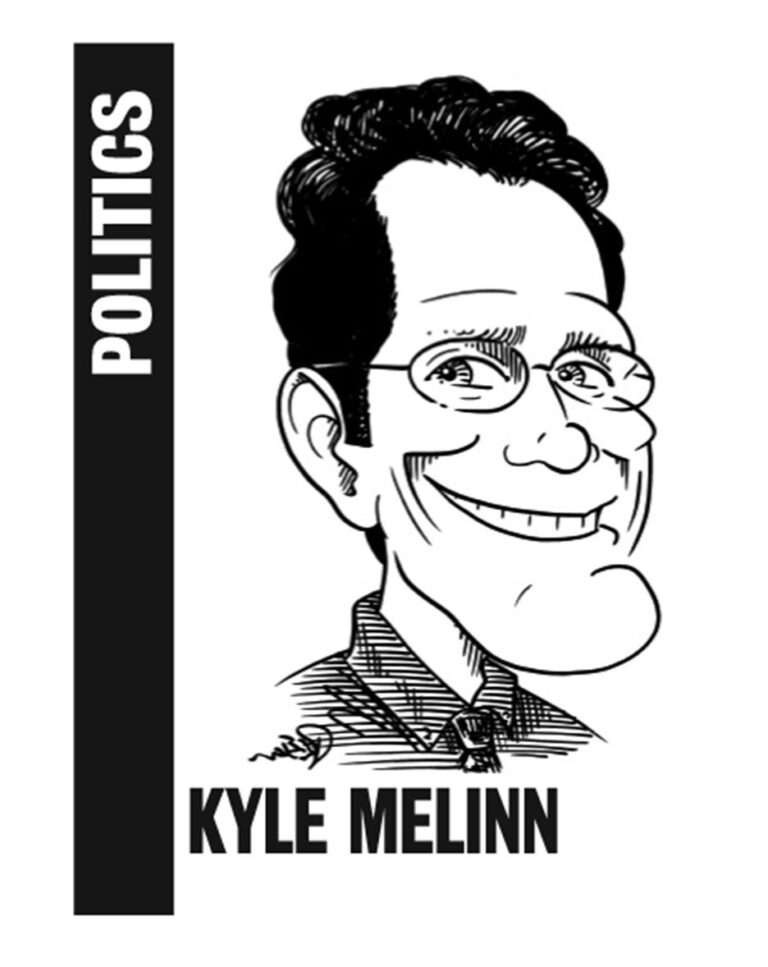Kyle Melin
“I don’t understand why there’s so much buzz about Curtis Hertel,” a colleague said to me the other day.
I stopped breathing for a minute.
“Don’t you remember that Hertel was a state representative?” I asked.
That was just 18 months ago. He was the guy behind the scenes making all the deals. He was the one who got things done. He was the guy who could dazzle anyone with his quick wit and biting sense of humor in floor speeches. He was the guy with a booming voice like Obama’s who could utter the quote of the day every time he opened his mouth.
Hertel is the man who passionately debated election denier Patrick Colbeck about road funding for sports, supposedly to shut him up when Colbeck challenged him, but in fact because of sports.
He and Jim Ananich are leading the Senate Democrats’ effort to seize control of the Senate in 2022 for the first time in 40 years. They’ve raised the money, they’ve made the plans, they’ve moved the chess pieces.
I explained all of this to her.
“You don’t remember anything about this?” I repeated.
She replied to me with a confused look.
“no.”
Oh. She wasn’t in Lansing in 2022. She doesn’t know State Senator Curtis Hertel Jr. I had to dig down my memory for that one.
Last week, at a legislative conference in Lansing, Hertel spoke before a small group of enthusiastic supporters in support of Gov. Gretchen Whitmer, who, of course, endorsed her former legislative director, her Senate colleague, a fellow East Lansing Democrat and a friend for at least 25 years.
It was automatic, just like Donald Trump’s endorsement of Hertel’s opponent, Tom Barrett, this week.
Hertel recited his prepared speech with the vigor of an established political candidate seeking victory in a battleground congressional district.
Protect women’s reproductive rights. Check.
Lamenting partisan gridlock in Washington. Check.
Congress needs to work for the American people. Yes.
Check. Check. Check. A solid speech. Nothing buzzworthy. No gaffes. Nothing that an oppositional researcher would immediately upload to their superiors.
In that respect it’s a win, but otherwise the same speech could have been given by Democratic congressional candidate Kristen McDonald Rivett of Saginaw, or by any other congressional candidate in Pennsylvania, or anywhere else.
So my point is this: Democrats and Republicans in 2024 are waging top-down, restrained, preventative defense campaigns in an age of social media and message distortion that makes political campaigns boring.
Even if it’s not Hertel, who was almost named MIRS Senator of the Year despite being in the minority, I would at least give credit to the press for being responsive.
Where is Tom Barrett? I saw him with his family at the Home Depot on Waverly Place a few months ago. Judging by their impressive campaign finance reports, I assume he’s also soliciting money over the phone, as Hertel has apparently been doing.
But where was Mike Rogers? Certainly not at the debate. Where was Elissa Slotkin? I found out about her event after the fact.
Justin Amash is reportedly running for the U.S. Senate, but he’s in some protected bubble and is literally unreachable by anyone in the media.
Do you know the names Sandy Pensler and Hill Harper?
Sometimes today’s political candidates talk to “safe” podcasters or media hosts and give a quick, five- or six-minute recitation of a message on a particular topic to a key constituency that some political genius says they should appeal to.
I get it. A politician’s job is to win elections. They’re not here to entertain the media or anyone else.
But there will be no “One Tough Nerd” or “Fix the Damn Roads” in 2024.
This is a meticulously crafted, national script that’s fed to candidates. A formula. No flashiness. It’s like the individuality has been sucked out of the candidates and they’ve been created in a lab or an AI or something.
Maybe in our new AI world, that will be the new political world.
If that’s the case, that’s a shame.
(Email Kyle Melin, Capitol News Service, MIRS, at melinnky@gmail.com.)

